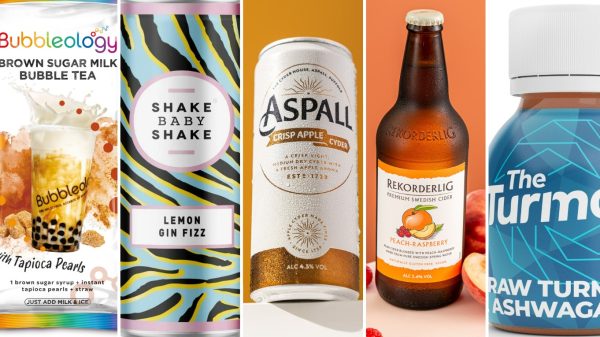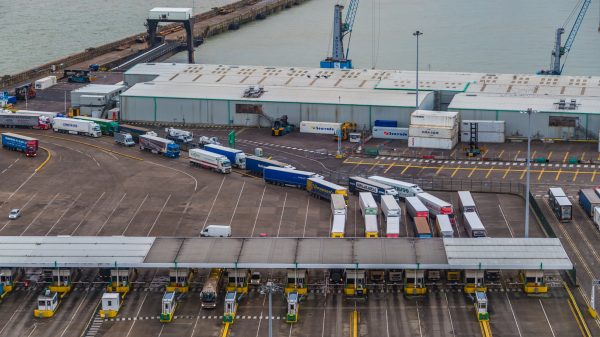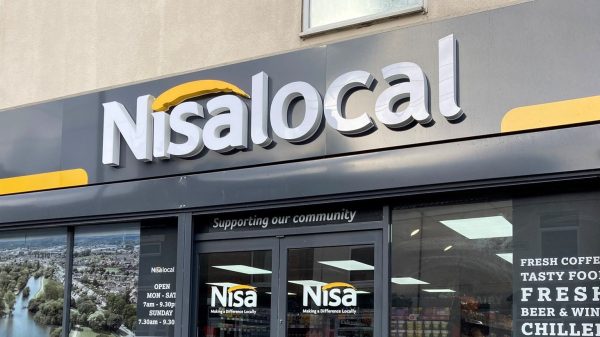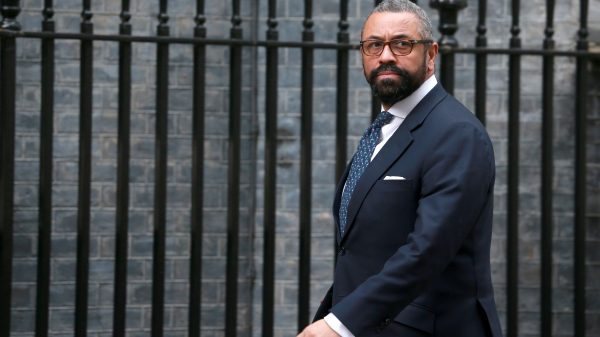At the end of last month, the UK and EU announced they had (finally) successfully struck a historic post-Brexit trade deal between Great Britain and Northern Ireland, simplifying movement of goods – including food – between the two countries.
The new deal – which is expected to take two years to fully implement – will be replacing the existing NI Protocol, previously signed by former prime minister Boris Johnson.
Named the ‘Windsor Framework’, the agreement will allow for an easier flow of goods to and from the EU countries, and effectively means that Northern Ireland will remain part of the European Union purely for trading purposes.
Delivered by Prime Minister Rishi Sunak and EU Commission leader Ursula von der Leyen following four months of intense negotiations, the Windsor Framework is expected to eliminate the shortcomings of the NI Protocol and make dramatic changes to how quickly goods can move through UK borders.
Prior to this trade deal, the NI Protocol meant that goods exported from the UK mainland to Northern Ireland faced rigorous border checks and lengthy paperwork that led to severe delays at the borders. It created a ‘border in the Irish Sea’ to ensure there was no hard border between North Ireland and the Republic of Ireland – but meant that trade to and from Britain was often significantly impacted as a result.
Chilled meats from Britain, including sausages and minced meat (which were banned under the NI Protocol) will now be able to move freely into and be sold in Northern Ireland, like most other retail food products.
Sunak said the legal implications of the Windsor Framework mean that “if food is available on supermarket shelves in Great Britain, then it will be available on supermarket shelves in Northern Ireland. This means we have removed any sense of a border in the Irish Sea.”
We find out more about what the Windsor Framework will mean for the grocery trade.
Subscribe to Grocery Gazette for free
Sign up here to get the latest grocery and food news each morning
How the food and drink trade will be affected
In the weeks since the Windsor Framework was first announced by the UK government, companies from across the UK’s food and drink industry – the largest manufacturing sector in the country – have received the news ‘cautiously’.
Representing 19% of the total UK manufacturing sector in terms of turnover, and employing over 4 million people in the UK, the new trade deal will have significant consequences on thousands of lives and businesses across the country.
“While we look through the details of the new agreement, we welcome progress on agreeing a long-term arrangement that ensures smooth trade in agri-food between Great Britain and Northern Ireland,” said president of the National Farmer’s Union (NFU), Minette Batters.
She added the new trade deal should “help overcome some of the practical issues which have arisen from how the Northern Ireland Protocol has been implemented so far, such as costly certification, physical inspections and even the prohibition on trade in certain products such as seed potatoes.
“I also hope this will act as a turning point to establish a more constructive trading relationship between Great Britain and the rest of the EU,” Batters added.
The implementation of the Windsor Framework is reportedly going to be phased in over the next year and will run into 2024.
Building on that, head of international trade at the Food and Drink Federation (FDF) Dominic Goudie commented: “Northern Ireland is a key market for UK food and drinks manufacturers. Any deal to improve the movement of goods is welcome, after the significant uncertainty our companies have faced over the past two years.”
Goudie added that The Windsor Framework aims to “deliver a pragmatic and business friendly solution to ensure Northern Irish consumers can continue to enjoy the full choice of quality UK products, without facing higher prices.
“We await further details of the agreement to fully understand what it means for our members.”
What the Windor Framework means for retail businesses
Under the new deal, when goods arrive in Northern Ireland they go through a ‘green lane’ if they are intended to stay in the region, or a ‘red lane’ if they are traveling to the EU. The green lane will specifically include food for retailers and hospitality businesses, and is reported to significantly reduce any ‘bureaucratic formalities’.
Sainsbury’s boss Simon Roberts said the supermarket welcomed the “positive news” on the Windsor Framework which will help to “simplify processes and reduce friction” when moving products between Great Britain and Northern Ireland.
“This means that our customers in Northern Ireland will once again be able to access the full range of products as customers in Great Britain – and at the same great prices,” Roberts added.
With recent widespread fruit and vegetable shortages, the new post-Brexit rules look set to make supermarket supply chains far more resilient to the effects of climate change, by sourcing from other countries.
M&S chairman Archie Norman also offered his thoughts on the deal, saying: “After two years of limbo, the Windsor Framework is a big step forward and fundamentally good news for the people of Northern Ireland and the UK businesses serving them.
“The new proposals outlined by the Prime Minister solve the Rubik’s Cube of the Protocol, and we appreciate the efforts that have been made to understand and address our concerns about the practicalities of fresh food trading.”
Norman added that the Windsor Framework will reduce “burdensome” checks and controls, and will ultimately improve product “availability, range and freshness in our very strong Northern Ireland food business”.
However, concerns remain around other challenges faced by companies trading with the EU, such as the added complexity and cost of different labelling requirements.
According to Norman, the current deal is evidence that “we can move forward”, as he hope the UK Government and EU can build on it and “break down the barriers to trade that still exist.
“The commitment to use technology to ‘future proof’ the deal, improve processes and reduce frictions going forward is a good first step.”
The future of the agri-food sector
As the main trade association for retail businesses in the UK, the British Retail Consortium (BRC) was heavily involved in creating the Windsor Framework. However, its Northern Ireland extension – named the Northern Ireland Retail Consortium (NIRC) – will be overseeing border checks and the smooth transition of the Windsor Framework.
“The Windsor Framework is a positive step forward for retailers trading in Northern Ireland and hopefully marks the reset of relations between the UK government and the EU,” said NIRC director, Neil Johnston.
“The agri-food sector in Northern Ireland is a significant supplier to UK supermarkets on a number of product lines,” he continued.
“Indeed, the amount of goods sourced in Northern Ireland for the rest of the UK means that the supermarkets are an important driver of the Northern Ireland economy.”
Describing retailing as a “dynamic and innovative sector,” Johnston said some “uncertainty about the future” still remains, with “considerable” detail yet to be worked through, particularly for products labelled ‘Not for EU’.
“Continuity and consistency are important for consumers, and we hope that initially any changes will be imperceptible to consumers throughout the UK. Retail is an extremely adaptable industry, and it will continue to evolve in a manner than keeps the focus of choice and value for consumers.”










